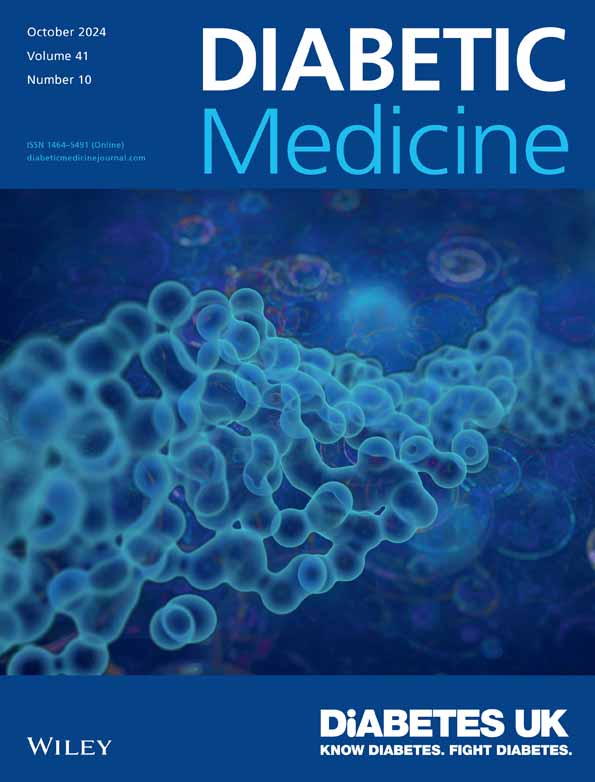The relationship of plasma glucose, stress hyperglycaemia and glycated haemoglobin with intermediate-term mortality after acute myocardial infarction in patients with and without diabetes
Abstract
Aims
Admission hyperglycaemia is an adverse prognostic indicator in the setting of acute myocardial infarction. It is unclear if this is because of previously undiagnosed diabetes, due to admission plasma glucose being a marker of a greater stress hormone response and therefore a more severe event, or due to a detrimental effect of high blood glucose on the myocardium.
Methods
We performed retrospective analysis of a cohort of 430 participants admitted with a diagnosis of acute myocardial infarction. We investigated the relation of admission plasma glucose, glycated haemoglobin, stress hyperglycaemia ratio and a novel parameter; the stress hyperglycaemia index, to mortality by Cox regression analyses. The stress hyperglycaemia index is the difference between the admission glucose and glucose estimated from HbA1c.
Results
We included 430 participants who were followed for a median of 2.5 years. The stress hyperglycaemia index was associated with increased mortality in patients with diabetes in both univariate and multivariate analyses. Admission glucose was associated with mortality in subjects with diabetes in univariate analysis and after adjustment of age and sex, but not after adjusting for eGFR. There was no significant association between admission glucose and mortality in subjects without diabetes. HbA1c was not associated with mortality in either patient group in both univariate and multivariate analyses.
Conclusion
Our results suggest a possible detrimental effect of hyperglycaemia in the setting of an acute myocardial infarction.

 求助内容:
求助内容: 应助结果提醒方式:
应助结果提醒方式:


